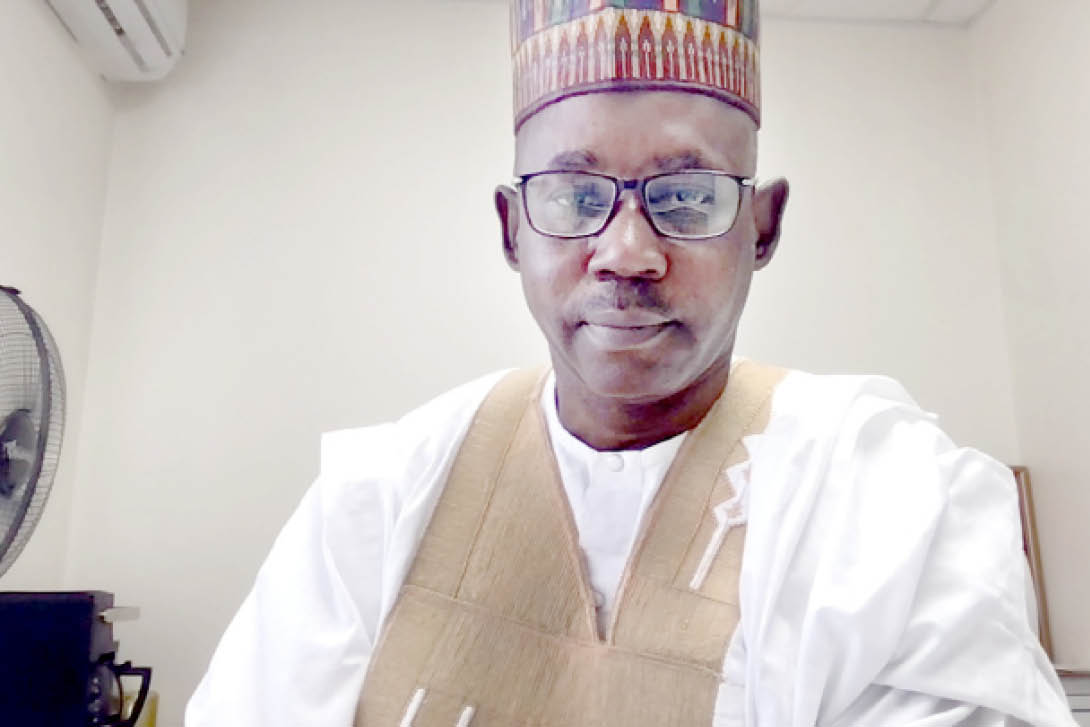Audu Liman is the Chief of Party of the USAID-funded Strengthening Education in North East Nigeria (SENSE) Project at the American University of Nigeria (AUN) and was before now, head of the Atiku Institute of the AUN. He is a seasoned international development professional with over 20 years’ experience designing and implementing projects in the areas of education, health, livelihoods and youth focused projects in countries such as Namibia, South Sudan and Nigeria. In this interview, he speaks on the lingering face-off between ASUU and the federal government; craze for establishment of state universities and how public universities can tap donor funds and other alternative funding sources, among other interesting issues.
What do you make of the lingering faceoff between ASUU and the federal government resulting in unending strikes?
I’m a Nigerian and as such, I would speak as Nigerian; you know much earlier when we were in schools and universities, the number of youths in university and the number of universities weren’t so much and government resources were enough to adequately cater including scholarships, and a lot of facilities and professors. This was so at that time for two reasons; one reason is that at the time, education was seen as elitist and so, to encourage everybody to have access, you have to have a subvention or an attraction. Government will pay everything practically; there were no tuition fees those days in Nigeria; the thing is they actually pay you to go to school, including university. Now, the population has increased but resources have not increased, and universities are struggling and this is not unique to Nigeria. It happens all over the world; even the United States went through that but what we have not done in Nigeria is that universities have not been encouraged to become innovative and find their own funds. They have to make the universities attract funding.
On the strike issue, the government doesn’t have the money and they will keep on making promises they cannot fulfil. ASUU themselves, instead of fighting that war when they know that money is not going to be there, they should rather be looking at other ways to generate funds that will allow the universities to continue, including if we have to pay more. Parents will have to pay a little bit more for the quality of education. Government alone cannot do it.
In other words, are you saying there is a need for introduction of tuition fees in the universities to address some of these issues?
If you think about it, there are already tuition fees just that it’s not much. I don’t think they should increase it because parents do not have the money to pay higher. What I’m saying is we should look for other sources that complement the unique advantage that those universities have. If you check it out, that’s the difference between the public universities and private universities.
Your centre got a $13 million grant, how were you able to do this?
This is an American University and so many of the things we do, we copy them from America or other foreign countries. If you go to any university in the US or UK, you would see, for example that they have many sources of funding more than what they can get from the governments. Universities in the US and UK such as Harvard, Columbia, Cambridge etc; generate about 10 percent of their income from funded research projects, development projects, foundations etc.
So, what we did here at the American University was that we set up a centre and that centre is called Atiku Institute for Development. What that centre does is we identify challenges and research them, develop solutions and pilot those solutions. When we develop solutions, we fund some of them as a pilot; when the pilot is done, we have results, we have evidence. That is the evidence we take to USAID, GIZ, British Council etc. and we will explain that look, in Borno State there are no schools because Boko Haram has chased them away. During the height of the insurgency when many children were out of school, we worked with our students to develop a radio education program. We were able to pilot test a radio program where you don’t need to have a classroom because it’s not safe and children are learning. Based on the result of the pilot, we were able to get support from USAID to enable us scale it to reach many out of school children in Yola and beyond.
How did we do this? We will say to the donor with evidence that we spent about N500,000 to reach 100 students; can you support us to reach one million students and they will tell us to go write a proposal and we write a proposal, they will fund it. When they fund the proposal, it allows us to hire some of our lecturers and some of our students to work on this project. But when they’re working on that project, instead of paying them salary from the NUC and fees, we pay salary from the project.
Number two which is very important is that we charge 10 per cent overhead for any project we do. So, imagine with the grant we got from USAID for $10m, 10 per cent of the $10m is almost N500m. That’s a lot of money and that money is just from one project. With this overhead as we call it, the university is going to have to do the work but that’s money that comes. So, the more you do that, as a university – which is what international investors are doing – the more you generate soft money; soft money is money that is not based on your students’ enrolment; it is based on what you are doing outside to help your community and country. So, now at our centre, we have about seven projects from different donors from USAID, British Council and the GIZ etc; we generate about $3.5m of project funds annually and of that, 10 percent is our overhead every year. These are funds that enable AUN to do a lot more than its own funds can cover.
Now, when you go to Nigerian public universities, instead of doing similar things, many are busy doing consultancy or visiting lecturers to supplement the salary they get and, in most cases, the university does not get a share of the funds generated.
We’re a private university and we pay a lot of money to lectures; we have a lot of overhead because we run our generators and all of that. So, we need money to enable us do that. Public universities don’t even pay half of what we pay. So, they should start getting projects and start generating income. This is the way to go and we are already working with the University of Maiduguri, BUK and other interested universities. We are supporting them with technical advice and support on how to go back and set up their own development centres because the problems are so many that one university or two cannot solve it.
How can Nigerian public universities access these grants?
Two things will happen; first of all, donors will not give their money to a university which does not have a sound financial system. The system has to be very sound otherwise; they will not invest their money because they are concerned about how their money is spent. For any public university to be accepted, you must have a separate bank account different from the university’s bank account so you can show that this is donor money.
Number two, for those donors to accept you, you must have an independent human resource system. You have to hire staff based on competency and not based on a minister or a commissioner sending somebody for the job. It has to be based on competence.
Number three is ethics; you must have policies that protect child abuse, sexual and gender-based abuse, conducive environment and no discrimination on basis of religion or tribe. Those are very important things to consider. They are very difficult for public universities to do, but some of the universities for example, University of Maiduguri has already started and Bayero University has also started doing projects. Now, they are getting some donor funds. It is small, but it’s increasing slowly, as the donor gets confidence in them.
Apart from the donor funding, what other alternative funding options do you see for public universities?
So many of them (universities) have under-utilized facilities that they can use to earn more money. Many have under-utilized conference facilities, vehicles, etc. that they can bring to standard and lease/rent out for additional income. Our university has a section it rents out to development partners to use as their offices. We have an international hotel and our own printing press all earning income for the university and providing employment for many graduates. In addition, our Institute offers technical support for our lecturers to write proposals to attract funds to enable them carry out research. Many of these researches end up becoming projects that the AUN will implement.
We also have halls that are owned by the university which we rent out for weddings, conferences and we get money from it. All of these are small amounts of money but when you add them up, they will help the university to free up a lot of money that they can use for other areas. Through these activities we have been able to bring additional income for our university. Some of these funds are used to pay for some essential services and cover other costs. This brings us additional income and also provides internship opportunities for our students.
How do you see the craze for establishment of universities by state governments?
The state of public universities is a very sad development; the NUC should not be approving them, there are just too many. And whenever they approve one university, it takes billions of naira to start it off. Once you start, there’s no money to complete it. So, it’s a very sad situation. Instead of opening campuses, they’re opening new universities where you have vice-chancellors and DVCs for a university that doesn’t even have the students. So, for private universities, many of them are going for business, which is okay, but even then, NUC should ensure that there are standards and that these standards are adhered to. NUC needs to strengthen up in terms of approving both public and private universities, particularly private universities, because the public is decided by the government.

 Join Daily Trust WhatsApp Community For Quick Access To News and Happenings Around You.
Join Daily Trust WhatsApp Community For Quick Access To News and Happenings Around You.


